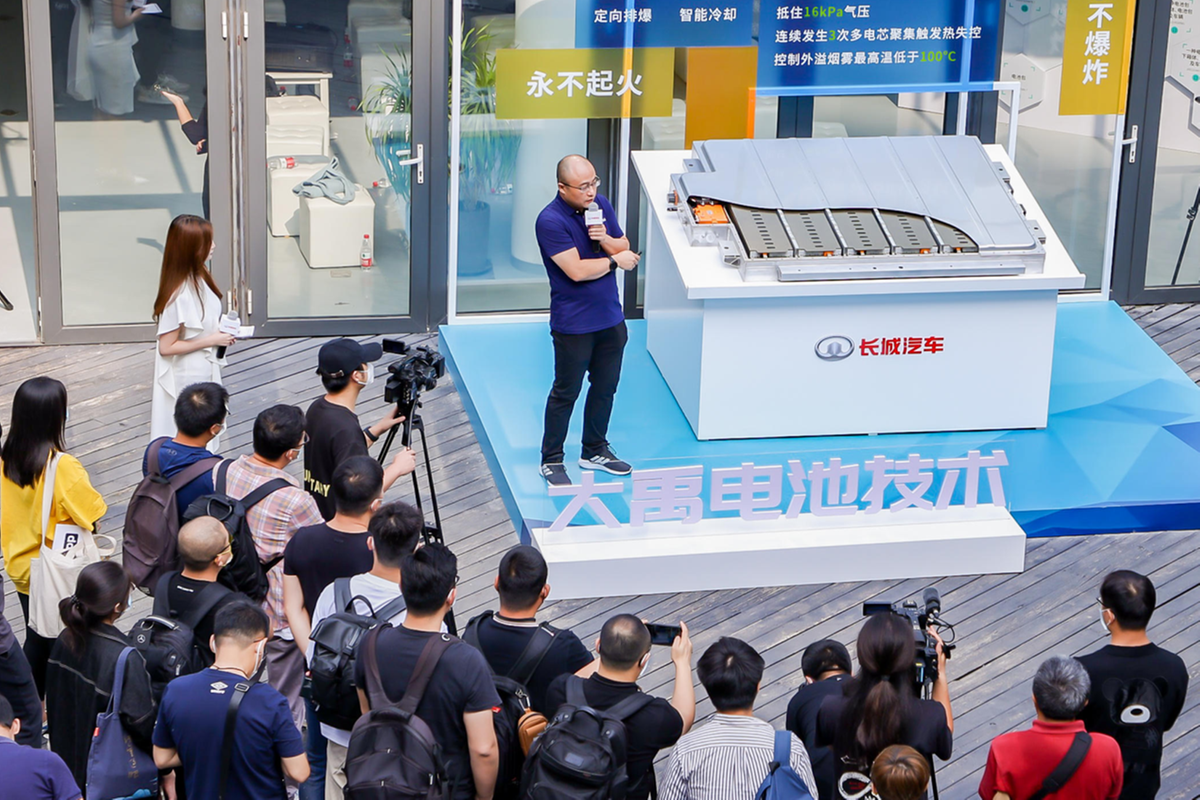
A GWM engineer explains how the Dayu batteries work on Sept 24 in Beijing. [Photo provided to chinadaily.com.cn]
Dayu, or Yu the Great, was a legendary king who was famed for taming the prehistoric floods in ancient China.
Instead of damming the raging torrents, Dayu succeeded in the effort by dredging the riverbeds and making a system of irrigation canals that introduced floodwater into fields.
His wisdom has inspired engineers at China’s Great Wall Motors when they work to improve electric car battery safety, said Cao Yongqiang, a battery design supervisor at the carmaker based in Baoding, Hebei province.
Cao made the remarks when the carmaker unveiled its battery products and expounded its philosophy on Friday in Beijing.
Battery failure is a long-standing problem in the new energy vehicle industry, discouraging potential buyers.
As electric vehicles are running or getting charged, their batteries may heat up but if not well regulated they may catch fire or even explode, posing potential risks to electric car drivers.
Statistics show that over 120 electric vehicles caught fire in 2020 and another 34 ended up in flames in the first five months this year.
Cao said so far carmakers and battery producers have been focusing on insulating problematic battery cells from neighboring others before they cool down to prevent disastrous results.
“This costs more money and batteries get heavier if you use better and more fire-proof materials. And they may fail all the same,” he said.
GWM engineers, inspired by Dayu’s wisdom, have worked out a novel method.
Instead of curbing them, they find ways to allow the heat of the failing cells to leave the battery pack as quickly as possible to prevent extreme temperatures and thus exclude possible fires or explosions, said Cao.
The carmaker said its tests show that the Dayu batteries would not catch fire or explode even when some cells are as hot as 1,037 degrees Celsius.
GWM said batteries featuring the Dayu method will be installed in its vehicles from 2022.
The carmaker expects to sell 4 million vehicles in 2025, with 80 percent of them being new energy vehicles.
GWM is allowing other companies in the industry to use its patents concerned free of charge. Cao said this is for the good of the electric vehicle owners’ safety and the whole industry.
“China is now a leading player in terms of new energy vehicles, and such exchanges will allow us to do a better job in the aspect,” he said.
China has been the world’s largest market for new energy vehicles since 2015.
From January to August, 1.8 million units were sold, almost double the figure in the same period last year, according to statistics from the China Association of Automobile Manufacturers.
